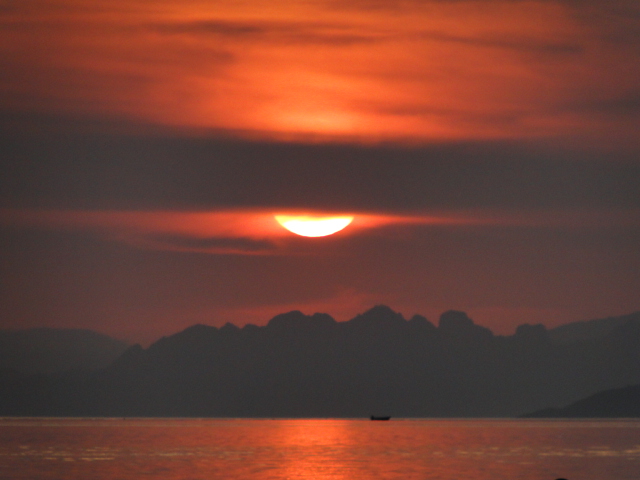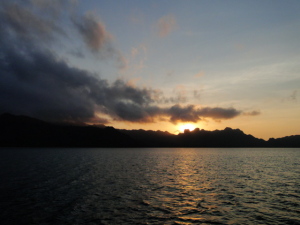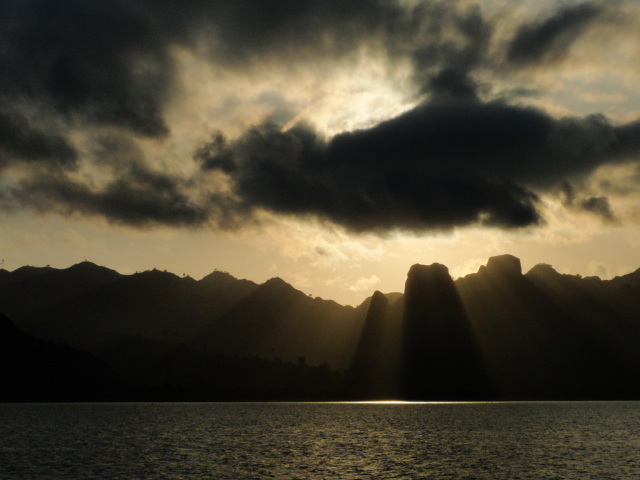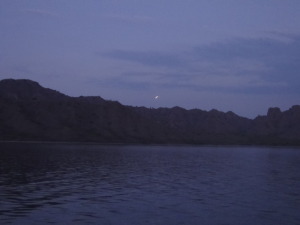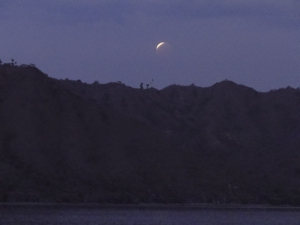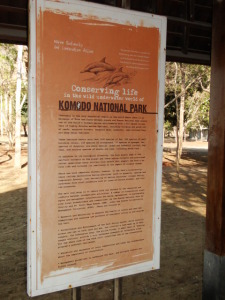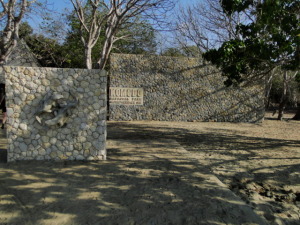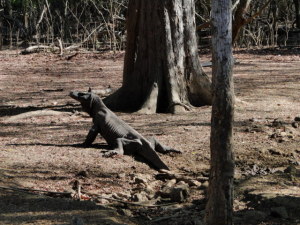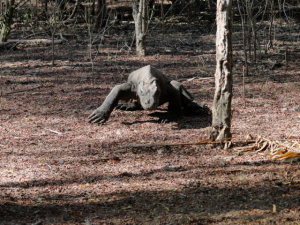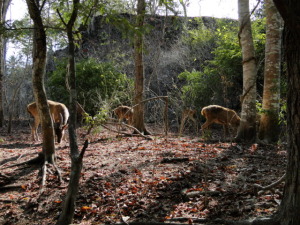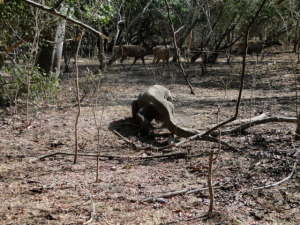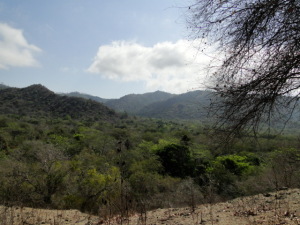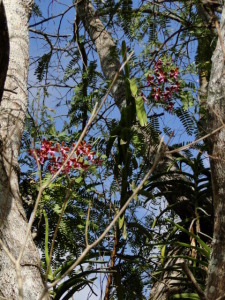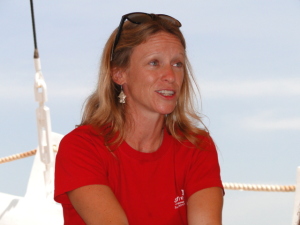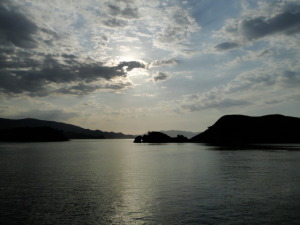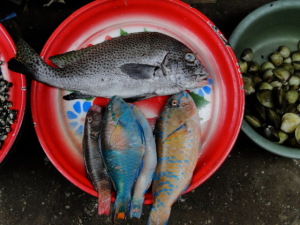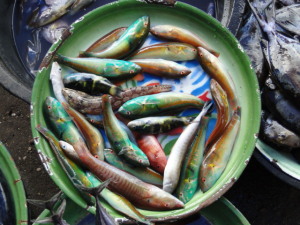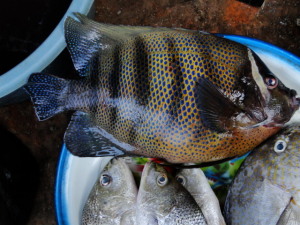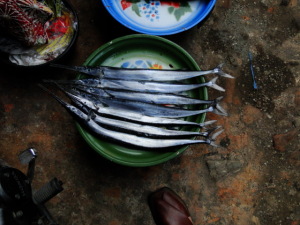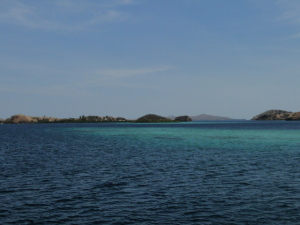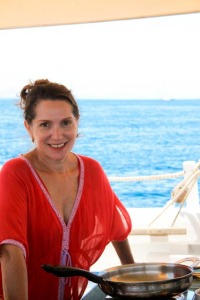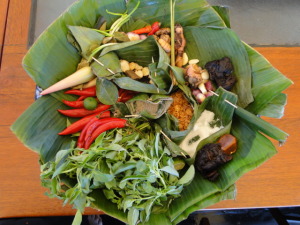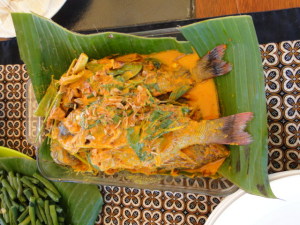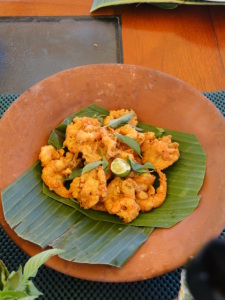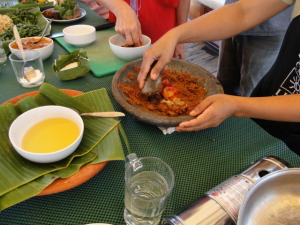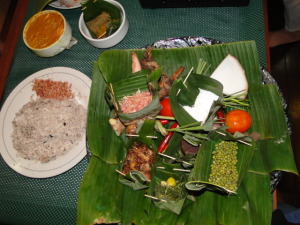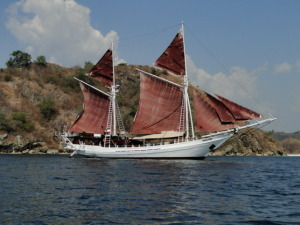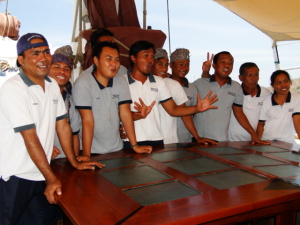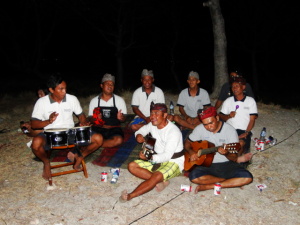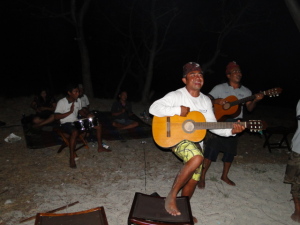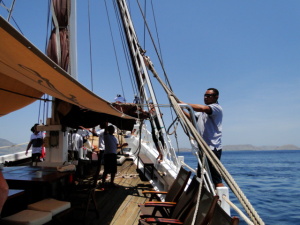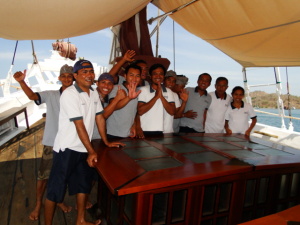Komodo is the kind of island
that inspires fantasy.
From a distance, the ridge that runs along it
has the appearance of the armoured spine of some gigantic Saurian creature.
As it happens the island did play a part in the genesis of the story of King Kong.
Merion C. Cooper, the man who is credited with inventing the idea of a ‘gigantic prehistoric ape’ is said to have been fascinated by the adventures of his friend Douglas Burden, whose travels resulted in the book Dragon Lizards of Komodo. And the mysteries of these islands are not all imaginary: it was in this region that the remains of the prehistoric ‘hobbit’ (Homo floresiensis) were found.
We on the Katharina were exceptionally lucky.
The night before our visit to Komodo
we witnessed a spectacular lunar eclipse.
Our visit to Komodo began at the Rangers’ station of Loh Liang.
The rangers warned us that the dragons are elusive creatures and that we might not see any on our walk.
But in no time at all we came upon a large male.
A magnificent creature,
it seemed to be stalking a herd of deer.
Dragons can sprint over short distances,
but their usual gait is slow and stately.
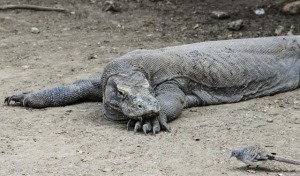
This was not this hunter’s lucky day;
stalking isn’t easy when you’re the cynosure of many eyes.
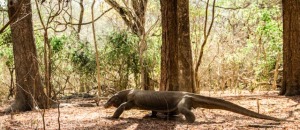
The trail gave us glimpses of a savannah-like landscape,
thirsty for rain at the end of the dry season.
But the conditions were just right for certain orchids.
The waters of Komodo National Park are famous for their reefs.
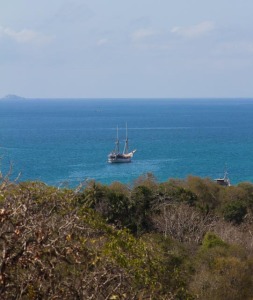
I have done a fair amount of snorkeling in my time
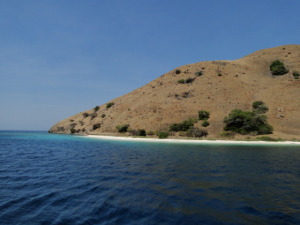 but I have never seen coral reefs as fine as these; nor have I ever come across such abundant and varied marine life.
but I have never seen coral reefs as fine as these; nor have I ever come across such abundant and varied marine life.
We were fortunate in having two experienced divers with us,
Jennifer Hayes, our guide,
and Joris Kolijn,
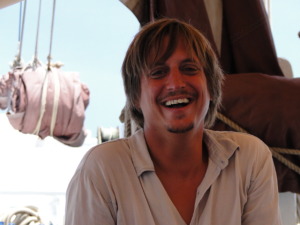 Sea Trek‘s manager. They are both intimately familiar with these waters and thanks to them we saw some amazing sights.
Sea Trek‘s manager. They are both intimately familiar with these waters and thanks to them we saw some amazing sights.
One unforgettable morning we swam with giant manta rays,
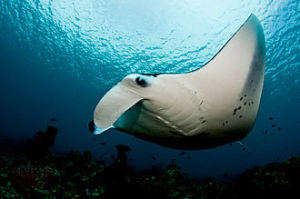
with wingspans of three metres or more.
The mantas circled playfully around us,
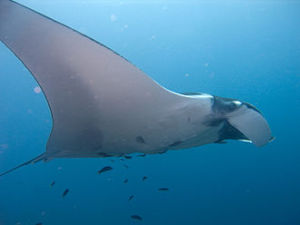
coming back again and again, as if to check us out, even making eye contact.
One day Joris and Jennifer took us to a channel
where marine life abounds because of a rich supply of nutrition, brought in by a powerful current.
The current swpet us along like birds in a gale, carrying us past reef-sharks, barracudas and
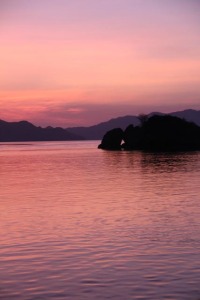
schools of fish, with the brilliant colours and fantastical shapes
of a hallucination.
Sometimes
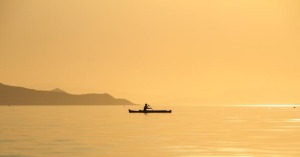
these fish end up in fishermen’s nets.
Later,
at a market in Lombok,
I came upon
some of these species of fish laid out on display.
Even there,
long dead,
their colours
and shapes seemed unreal.
One afternoon, I found myself swimming some twenty feet above a green turtle.
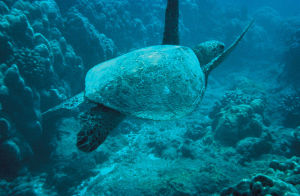
It was a clear day and a bright funnel of sunlight was focused upon the turtle’s emerald-tinted shell.
It was gliding effortlessly along, like an eagle on an updraft. The slow, undulating motion of its limbs, as much as the penumbra of radiance that surrounded it, gave it the appearance of an angel.
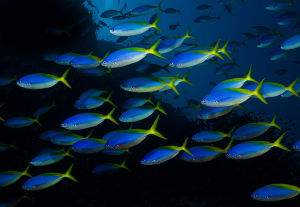
Suddenly a school of fusilers appeared, encircling the turtle in a halo of flashing colours.
It was as though I had been granted a vision of something not of this world: it was perhaps the most beautiful sight I have ever seen; no human creation could come close to rivalling it; no picture could do it justice.
And when we weren’t swimming with rays or walking with dragons, there was wonderful food to sample.
Janet de Neefe, who runs two of the finest restaurants in Bali – Casa Luna and Indus –
was on board, to explain Indonesian cooking techniques:
how spices and herbs are combined and ground;
how a Sumatran fish curry is made;
and how to serve prawn fritters.
Janet is the author of Bali: Food of My Island Home – one of the best, most user-friendly cookbooks ever written. I love it and use it all the time.
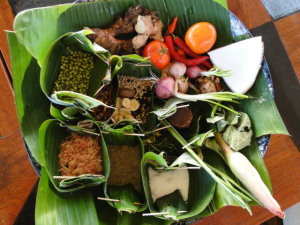 It has inspired me to grow my own turmeric, ginger, galangal, chilies and lemon grass.
It has inspired me to grow my own turmeric, ginger, galangal, chilies and lemon grass.
In Indonesian cookery
these spices are always used fresh, never dried, as is usually the case in India. This makes for an enormous difference in taste
and vastly enhances the medicinal and health-sustaining properties of these spices.
And to top it all, there were many wonderful conversations. Most of the Katharina‘s passengers were writers and every evening we talked of writing and reading.
But the most wonderful thing about the Katharina
was her crew.
they were the most cheerful group of seamen
I have ever come across.
Whether singing,
or playing the guitar
they threw themselves wholeheartedly into everything they did.
To them goes the credit for turning their vessel into a ship of dreams.

